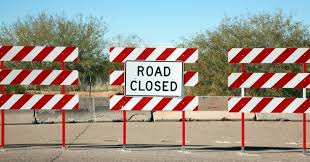What I Learned from Murder and Mayhem 2020
/Many thanks to Lori Rader-Day, Dana Kaye, and their team for making the Murder and Mayhem conference virtual. It was a great way to spend a Saturday during the quarantine. Here’s what I learned from all the fabulous panelists.
Writing/Craft
It can be hard to keep a series fresh and new. The story needs to make sense especially when you get 5-6 books into the series.
The character needs to progress and evolve as the books move forward.
The challenge is to keep long-time readers interested and to draw in new readers to your series.
Weave in your backstory. It should come naturally as the story progresses.
Get rid of gender biases in your writing. Don’t fall into tropes or stereotypes.
Create a document (character bible) to help you keep up with the details about your characters and locations.
Remember that every character has a secret.
Characters need a purpose.
Stop reading craft books and read lots of novels that you like. If you want to be a screen writer, watch lots of movies.
Write from your gut.
Sit down and write.
Book Promotion/Marketing
Plan your marketing up front.
You need to connect with bloggers, influencers, and podcasters.
Understand your audience and how they get book recommendations.
Start small and local.
Find out what your publisher is doing, so that you can supplement and not duplicate.
When you talk to people, make it conversational and not pitchy. You don’t want to be the guy or gal with the sandwich board and the megaphone.
Look at the analytics for your social media posts and see what resonates with people.
Street teams are often helpful with book promotion.
See what people are reading, and see where those books are mentioned.
Go where your audience is.
If you do a newsletter, make sure the content is effective. Be consistent. Do what works.
Personal and educational content often works best in newsletters.
Build your email list organically.
Quality over Quantity.
Always be a good, literary citizen. Like, share, comment on others’ posts.
It’s okay to connect with others via email. Just don’t do mass email blasts.
Face-to-face events are still important.
Things You Need to Check Out
Book Cellar in Chicago
The Doe Network (International Center for Unidentified and Missing Persons)
Quarantine Online Book Clubs

















